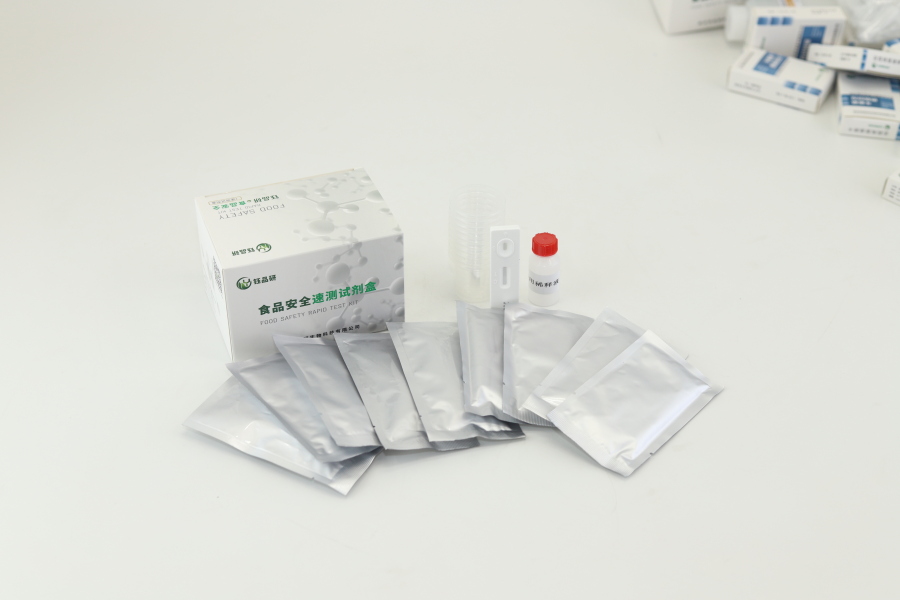During the circulation of agricultural products from field to table, pesticide residues are one of the important factors affecting food safety. Among them, phenethylconazole, as an efficient fungicide, is widely used in fruit trees, vegetables and other crops to prevent and control a variety of fungal diseases. However, if its residues exceed the standard, it may pose a potential threat to human health, so rapid and accurate detection of its residues has become a key link in food safety supervision.
phenethylconazole rapid detection card is a new detection tool developed in response to this demand. It is based on immunochromatography technology, which immobilizes specific antibodies on test strips, and realizes qualitative or semi-quantitative detection of phenethylconazole residues in samples through antigen-antibody specific binding reaction. When using, simply drop the sample (such as the extract of fruits and vegetables) into the detection card and sample hole, wait for a few minutes, and observe the color development of the detection line and the quality control line to quickly determine whether there is a phenyl ether methoxazole residue.
This detection card has significant advantages: first, the detection speed is fast, usually results can be obtained within 10-15 minutes, which greatly shortens the time compared to traditional laboratory detection methods (such as high-performance liquid chromatography); secondly, it is easy to operate, without the need for professional instruments and complex pretreatment, ordinary staff can get started after simple training; secondly, it has high accuracy, can reach the detection sensitivity of μg/L level, and can effectively identify low-concentration residues; in addition, it also has the characteristics of strong portability, suitable for rapid screening in the field, market stalls and other sites, and timely detection of excessive products.
In practical applications, the phenethylmethoxazole rapid test card is widely used in the quality control of agricultural production, the daily sampling inspection of market supervision departments, and the acceptance of raw materials in food enterprises. It can not only help regulators quickly lock in risky products and reduce the risk of substandard food entering the market, but also provide consumers with more intuitive food safety information. At the same time, it provides scientific guidance for agricultural producers to promote the improvement of the quality and safety level of agricultural products.
It can be said that the phenethylmethoxazole rapid test card is an important link connecting food safety supervision and actual production. With its "fast, accurate and convenient" characteristics, it has become a right-hand assistant to protect our "safety on the tip of the tongue".


